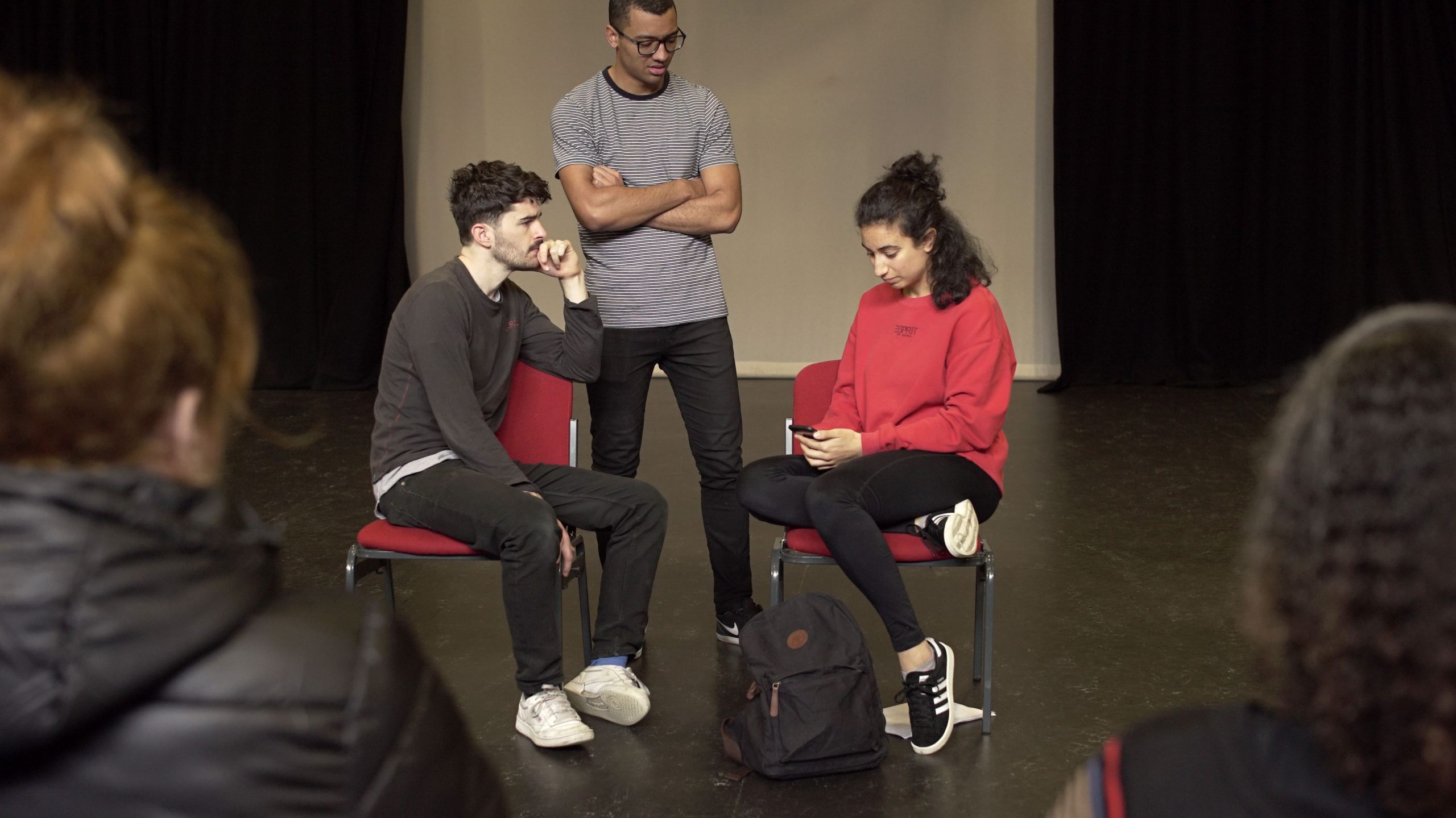This blog post was published under the 2019 to 2022 Conservative government
By Rebecca Friel, CEO of Odd Arts
Odd Arts uses theatre to change the way people understand themselves and the world around them. The themes we explore are nuanced and complex: Hateful extremism; sexual assault; mental health; exploitation. All of them hold risk. None of them have ‘one answer’. For this reason, many people (including teachers) feel safer avoiding them.
Below are some of our top tips to help enable facilitators and teachers begin to address these issues in their own classroom and spaces.
Adopt creativity and the arts:
People’s personal experiences, traumas, and challenges can often feel too painful, messy or inexplicable for young people to speak or write about. Creativity enables them to better understand these. By showing, seeing, hearing, and experimenting young people are more able to access their creativity, feelings and emotions. A painting, mime, poem, character or dance (for example) can allow young people to explore things they might otherwise be blocked from understanding. Using characters and stories enables people to explore their own lives and experiences but from an outside (and one step removed) perspective and often gain new insight to their own situations.
To encourage creativity, we avoid traditional classroom set-ups. We favour use of the floor, space and group circles. Engagement of body, space and movement is one way that enhances young people’s ability to be creative.
Change ‘Why’ to ‘What’:
We believe that beginning a question with ‘Why’ can lead people to feel attacked and gives the impression of judgement. A simple change of phrasing can make all the difference in opening discussions and finding out more about people’s views. For example, by changing “Why did you do that” to “What happened there?” or “What were you feeling before that happened?” really helps people to open-up.
Create a safe space:
For those with complex vulnerabilities and low confidence, creativity feels like a huge risk. It is exposing as much as it is empowering. It can open wounds as well as heal them. If people feel unsafe, it is unlikely they will be able to access their creativity if they are not used to it already. To us, safety means:
- responding to individual needs and being flexible.
- being trauma informed, trained to understand issues such as abuse, discrimination, bereavement, and a commitment to treating and responding to people as individuals.
- considering group dynamics, being able to sense existing conflict within the group as well as seeing how some people work particularly well together.
- being accessible (for people with diverse lived experience, faith, culture, physical ability and identity, as well as those who are neuro-diverse).
- where possible, utilising a two-facilitator team.
- encouraging but never forcing the skills that can unlock creativity and connection.
Remain Impartial:
It can be tempting to input our own thoughts and opinions when leading a discussion, but it is vital to remain impartial. Our role should be to facilitate the discussions, not take over them. There are ways to allow participants to see other points of view without aligning with them ourselves, and an excellent way to do this is through their peers. For example, “How do other people feel about this?”, or “What other opinions has anyone heard about this?”.
Odd Arts has a number of specialist ‘forum theatre’ workshops at a fee for schools. In our workshops, the plays we share are hard hitting and reflect the painful stories relating to extreme right-wing and Islamist inspired extremism. We also deliver free weekly workshops with 11–25-year-olds in Manchester. For more information on these workshops visit www.oddarts.co.uk / @OddArtsUK.
Resources: Visit Educate Against Hate’s free classroom resource Essentials of Dialogue, a classroom resource which helps build the skills of dialogue and critical thinking in young people, or Extreme Dialogue which features a series of hard-hitting films of real people affected by radicalisation.

